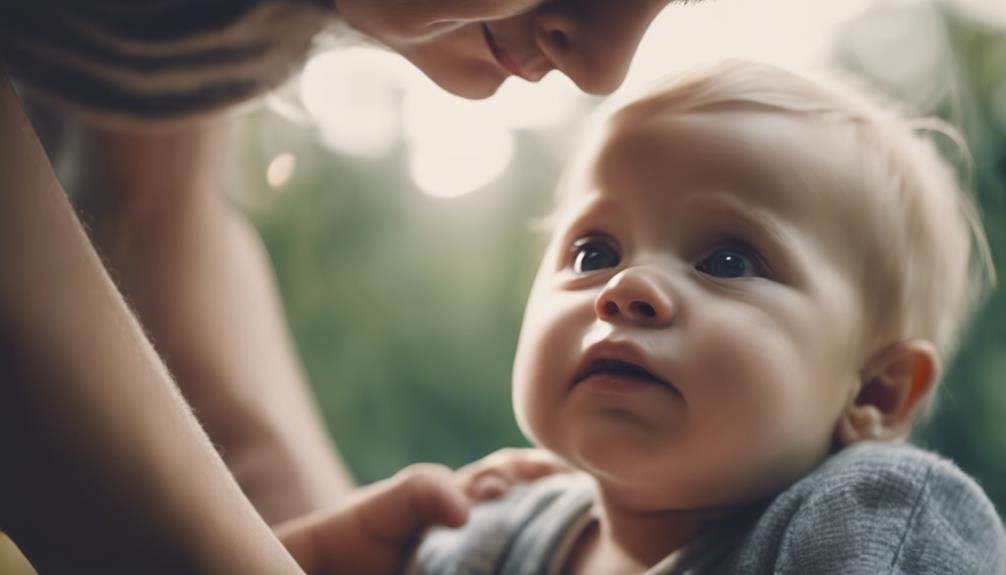"Cherishing Little Steps - A Haven for Baby and Family Journeys"
The Psychology Behind Toddler Emotions: Understanding and Support
Did you know that toddlers experience a wide range of complex emotions, often unable to articulate their feelings verbally? Understanding the psychology behind toddler emotions is key to providing effective support and fostering healthy emotional development. Exploring how toddlers perceive and express emotions can offer valuable insights into their inner world and help caregivers navigate challenging moments with empathy and understanding. By unraveling the mysteries behind toddler emotions, you can cultivate a nurturing environment that promotes emotional well-being and resilience in these formative years.
Key Takeaways
- Acknowledge and validate toddler emotions to build emotional intelligence and trust.
- Create a safe and supportive environment to nurture emotional regulation skills.
- Model healthy emotional responses to teach toddlers self-regulation and coping strategies.
- Understand underlying reasons for tantrums to provide comfort and reassurance.
- Foster attachment to shape emotional development, confidence, and resilience in toddlers.
Toddler Emotions: A Rollercoaster Ride

Navigating toddler emotions can feel like riding a rollercoaster, with ups and downs that can leave both child and caregiver feeling a whirlwind of emotions. It's crucial to understand that toddlers are still learning how to regulate their feelings and express themselves effectively. As a caregiver, it's normal to feel overwhelmed at times, but remember, you aren't alone in this journey.
When your toddler has a meltdown over seemingly small things, it's important to stay calm and offer them reassurance. Toddlers often struggle to communicate their needs verbally, leading to frustration. By acknowledging their emotions and providing a safe space for them to express themselves, you're helping them build essential emotional skills.
The Power of Emotional Development
Emotional development in toddlers is a powerful journey of self-discovery and growth, shaping their future relationships and well-being. As you navigate this critical phase with your little one, remember that every emotional experience is a building block for their future. Here are some key points to consider:
- Foundation of Communication: Toddlers are learning to express themselves verbally and non-verbally, laying the groundwork for effective communication skills in the future.
- Building Empathy: Through understanding and validating your toddler's emotions, you help them develop empathy towards others, a crucial skill for healthy relationships later in life.
- Self-Regulation Skills: Teaching toddlers how to manage their emotions and impulses sets the stage for better self-regulation as they grow, promoting resilience and adaptability.
Embrace this journey with patience and understanding, knowing that your support plays a vital role in nurturing your toddler's emotional development.
Unpacking Toddler Tantrums

Dealing with toddler tantrums can be challenging but understanding the underlying reasons can make managing them easier. Tantrums are often a way for toddlers to express their overwhelming emotions when they lack the words to do so. They can be triggered by various factors such as hunger, fatigue, frustration, or a need for independence. When faced with a tantrum, it's important to stay calm and empathize with your child's feelings.
One effective strategy is to provide comfort and reassurance, letting them know that you understand they're upset. Offering choices can also help them feel a sense of control and reduce the likelihood of a meltdown. Remember, toddlers are still learning how to regulate their emotions, so patience and understanding are key.
Redirecting their attention to a different activity or creating a calm environment can sometimes help diffuse the situation. By addressing the root cause of the tantrum and teaching them healthy ways to cope with their emotions, you aren't only managing the current outburst but also helping them develop important emotional regulation skills for the future.
Building Emotional Intelligence Early
Understanding your toddler's emotions from an early age lays a strong foundation for developing their emotional intelligence. Building emotional intelligence early is crucial for your child's overall well-being and future success. Here are three essential ways to nurture your toddler's emotional intelligence:
- Encourage Self-Expression: Create a safe space where your toddler feels comfortable expressing their feelings. Listen actively and validate their emotions, helping them learn to identify and communicate what they're experiencing.
- Teach Problem-Solving Skills: Guide your toddler in finding constructive ways to manage their emotions and solve conflicts. Encouraging them to brainstorm solutions and understand the impact of their actions fosters emotional regulation and empathy.
- Model Healthy Emotional Responses: Children learn by example, so demonstrate healthy ways to cope with stress or frustration. Showing resilience, empathy, and effective communication skills sets a positive emotional intelligence model for your toddler to emulate.
Understanding Toddler Attachment

Curiously, how does your connection with your toddler influence their sense of security and trust in the world around them? Your attachment forms the foundation for your child's emotional development. The bond you share shapes how they perceive relationships and navigate their emotions. When you respond consistently to your toddler's needs, they learn to trust that you'll be there for them, creating a secure base from which they can explore the world. This sense of security fosters their confidence and resilience in facing new experiences.
Your toddler looks to you for comfort and reassurance, seeking solace in your presence during times of distress. By being attuned to their cues and offering a supportive environment, you help them regulate their emotions and build a strong sense of self. Your responsiveness cultivates a deep sense of trust within your child, laying the groundwork for healthy relationships in the future. Remember, your connection with your toddler plays a crucial role in shaping their emotional well-being and outlook on the world.
Nurturing Emotional Regulation Skills
Your connection with your toddler greatly influences their ability to regulate emotions effectively, laying the groundwork for their emotional well-being and resilience. Here are some ways you can nurture their emotional regulation skills:
- Model Emotion Regulation: By demonstrating how you manage your emotions in a healthy way, you provide a powerful example for your toddler to learn from.
- Create a Safe Environment: Establishing a safe and predictable environment can help reduce stress and anxiety, making it easier for your child to regulate their emotions.
- Teach Coping Strategies: Encourage your toddler to use simple coping strategies like taking deep breaths, counting to ten, or using words to express how they feel.
Empathy as a Key Support Tool

Empathy serves as a powerful tool in supporting your toddler's emotional development and well-being. By showing empathy, you're validating your child's feelings and letting them know that their emotions are understood and accepted. When your toddler is upset, simply acknowledging their feelings by saying, 'I see that you're feeling sad,' can make a world of difference. Your child may not have the words to express their emotions fully yet, so your empathy helps bridge that gap.
Empathy also helps your toddler learn how to empathize with others. As they see you modeling empathy towards them, they begin to understand how to show empathy towards others in return. This sets a strong foundation for healthy relationships in the future.
Encouraging Positive Emotional Expression
Encouraging your toddler to express their emotions positively can foster a healthy emotional development. Here are some ways you can support your little one in navigating their feelings:
- Model Healthy Expression: Demonstrate how to communicate emotions effectively by expressing your own feelings in a constructive manner. This sets a positive example for your toddler to follow.
- Validate Their Emotions: Let your child know that all feelings are valid and normal. By acknowledging their emotions without judgment, you create a safe space for them to express themselves openly.
- Teach Coping Strategies: Help your toddler develop coping mechanisms such as taking deep breaths, using calming techniques, or engaging in activities they enjoy. Encouraging these strategies empowers them to manage their emotions in a healthy way.
Frequently Asked Questions
How Can I Help My Toddler Cope With Fear of Separation?
You can help your toddler cope with fear of separation by offering reassurance, creating predictable routines, and practicing short separations gradually. Show understanding, be patient, and provide comfort to help them feel secure and confident.
What Strategies Can I Use to Teach My Toddler About Empathy?
To teach your toddler about empathy, model kindness and understanding in your interactions. Point out emotions in others and discuss how they might feel. Encourage sharing and caring gestures towards others to foster empathy skills.
Is It Normal for Toddlers to Have Intense Mood Swings?
Yes, it is normal for toddlers to have intense mood swings. Their developing brains and limited communication skills can lead to big emotions. Stay calm, offer comfort, and model healthy ways to express feelings.
How Do I Handle Aggressive Behavior in My Toddler?
When handling aggressive behavior in your toddler, remember to stay calm and set clear boundaries. Use positive reinforcement to encourage good behavior. Seek help from professionals if needed. Your patience and consistency will make a difference.
What Role Does Routine Play in Supporting Toddler Emotions?
In supporting toddler emotions, routine plays a crucial role. Consistent schedules provide predictability and stability, helping toddlers feel secure and in control. Establishing regular routines for meals, naps, and playtime can positively impact their emotional well-being.
Conclusion
As you navigate the ups and downs of toddler emotions, remember that your support plays a crucial role in their emotional development. Did you know that toddlers start to understand complex emotions like empathy as early as 18 months old?
By acknowledging their feelings, teaching healthy coping mechanisms, and fostering secure attachments, you're helping them build essential emotional skills for a lifetime of well-being. Keep nurturing their emotional intelligence with love, patience, and understanding.
You're doing a great job!



I have been surfing online more than 3 hours today yet I never found any interesting article like yours It is pretty worth enough for me In my opinion if all web owners and bloggers made good content as you did the web will be much more useful than ever before